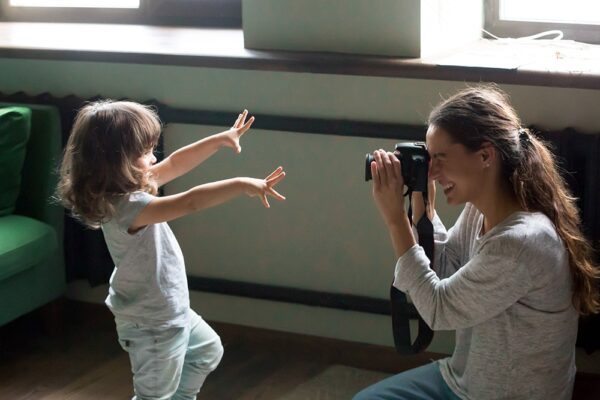
31 August 2020
A photo or vlog of your child on social media: “sharenting” in consultation
In today's digital society it is increasingly common for parents to share a photo or a video log (hereafter: "vlog") of their child via social media, such as Instagram or Facebook.
Posting a photo or vlog of a child on social media is also referred to as “sharenting”.
Posting a photo or vlog via social media is a decision that parents should make jointly, as this choice can have consequences for the child.
The other parent may have an issue with posting photos or vlogs of the child on social media. Particularly after a divorce or separation, a dispute between parents can arise about whether the photo or vlog of the child may be posted on social media.
Joint parental authority and Article 1: 253a BW
The starting point in the Netherlands is that joint parental authority continues after a divorce or separation. Joint parental authority means that parents must make joint decisions about choices that affect the life and person of the child. Therefore, if parents have joint authority of a child, they have to agree whether the photo or vlog of the child will be posted.
If one of the parents does not agree with the placement of a photo or vlog of the child on social media, then in principle the other parent will not be allowed to post the photo or vlog. This results in a so-called custody dispute. If the other parent nevertheless proceeds with placement of the photo or vlog, it is possible to go to court on the basis of Article 1: 253a BW. The judge will determine if the placement of the photo or vlog is in the best interests of the child.
Case law
In case law examples can be found of situations in which a parent has posted a photo or vlog without the consent of the other parent. The other parent then requests the judge to remove the child’s photo or vlog. An example of such a judgment is the judgment of the District Court of The Hague on 1 October 2018 (ECLI: NL: RBDHA: 2018: 13105).
In this ruling, the father of the children requested the removal of all vlogs posted by the mother on Instagram and Youtube in which the children could (partly) be seen and/or heard. The father feared bullying behaviour and adverse consequences for later functioning in social life, and also, but to a lesser extent, objectification by paedophiles.
The court considered that the privacy of the children was at stake. Given the very young age of the children, the court did not find that the children were already consciously exposed to (possibly) bullying or ridicule by third parties that could be traced back to the vlogs. However, according to the court, this could indeed be the case in the future. As a result, the father’s request to delete the vlogs was therefore granted.
The mother was, however, allowed to post photos and vlogs of the children through limited disclosure. In this ruling, this meant that mother was allowed to post photos and vlogs on her personal Facebook page, which, besides the 250 friends, was not accessible to other potential visitors.
What does this mean in practice?
Already include agreements in the parenting plan about posting photos or vlogs of the child on social media. An example would be to only post photos or vlogs of the child on social media if the social media account is in private mode. This limits disclosure and reduces the invasion of the child’s privacy.
Of course, parents are also free to make further (written) agreements after a divorce or separation.
In addition, always ask yourself whether the placement of the photo or vlog is in the best interest of your child. A (young) child is not yet aware of the privacy aspects of social media. At a later age, your child may be able to form his/her own thoughts about the placement of a photo or vlog on social media. In that case it is advisable to consult with your child.
Questions?
If you have any questions about this blog or other matters in the field of personal and family law, you can contact Sophie Vermeule. She can also assist you if you want to submit a dispute about the posting of a photo or to the court.
8 April 2024
Prenuptial agreements: the regular set-off clause
A common provision in prenuptial agreements is the ‘regular set-off clause’.
Read more
1 April 2024
Does loss of income mean higher child maintenance?
A parent may suffer a loss of income due, for instance, to not being able to find a new job. Under the law, child maintenance may be adjusted in such circumstances.
Read more
21 March 2024
15 years of parenting plan
This month, the mandatory parenting plan celebrates its 15th anniversary. Following a divorce or dissolution of a registered partnership, you will certainly need a parenting plan if you have minor children together. A parenting plan is also mandatory if you have been in a relationship and have joint parental authority.
Read more
